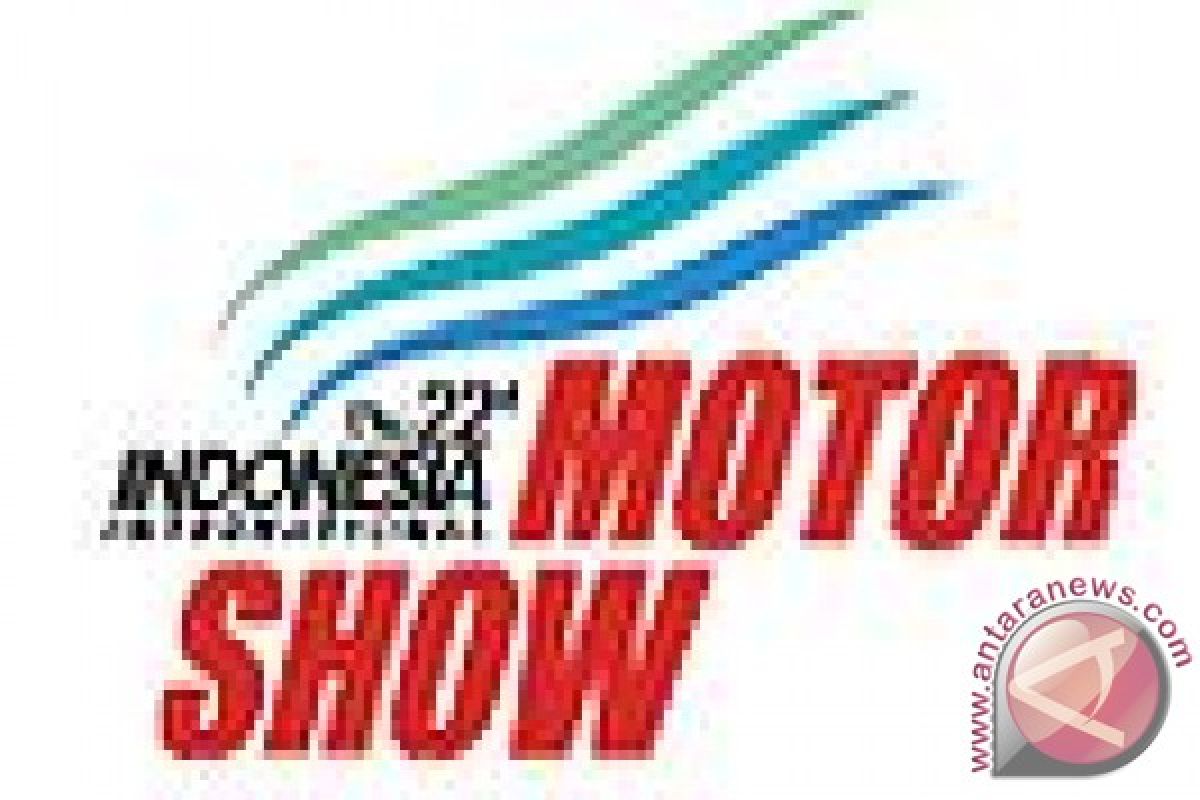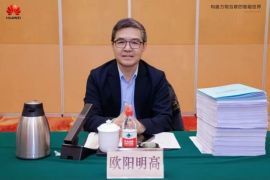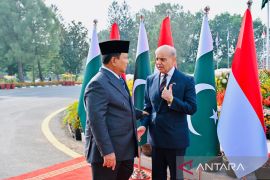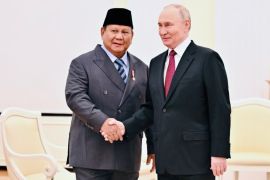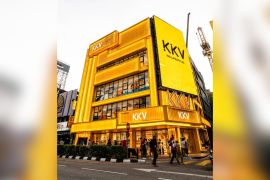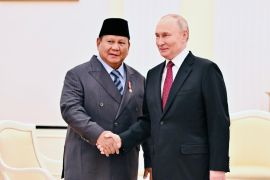JAKARTA, Sept 25, 2014 - (ANTARA) - Indonesia International Motor Show (IIMS) is the momentum for the country's industry players to expand their professional network with local and international counterparts. Taking the momentum, GAIKINDO regularly holds Indonesia International Automotive Conference (IIAC), and this year it is held for the ninth time.
Taking place at Holiday Inn Hotel, Kemayoran, Jakarta, The 9th IIAC presents prominent speakers, known for their professional roles in the local and international automotive industry. The theme for this year's IIAC is in line with IIMS' theme, "Smart and Safe Mobility".
IIAC 2014 was officially opened by Sudirman MR, Chairman of GAIKINDO, followed by keynote speaker by Budi Darmadi, Director General of High Technology-Based Industry, the Ministry of Industry, and two conference sessions. In his remarks, Budi Darmadi said Indonesian industry players must prepare themselves to welcome the ASEAN Economic Community (AEC) so they will be able to compete in the global market. Indonesia, said Budi, has a challenge in terms of limited supporting industries, including infrastructure and depleting oil resources. He also expressed his appreciation to IIMS since the exhibition reflected the success of the country's automotive industry.
The first session of the conference discussed points that are in line with Budi Darmadi's remark. The session presented four speakers, namely Toru Nakata, Manager Asia Research Department FOURIN, Vivek Vaidya, Vice President Frost & Sullivan, Yoshihiro Yano, Vice President for International Affairs, Japan Automobile Manufacturers Association, Inc. (JAMA), and DR. Kurtubi, the country's oil and gas observer. This session, with Indonesian media figure Tommy Suryopratomo as the moderator, further discussed the Indonesian automotive industry perspective.
According to Frost & Sullivan, ASEAN is the 5th biggest automotive market in the world with total sales in 2013 reaching 3.5 million units. Thailand and Indonesia are the two top contributors for sales in ASEAN. The largest markets in the world are China with 21.9 million units, United States with 15.6 million units, Japan with 5.3 million units, and Brazil with 3.6 million units.
The topics discussed by the speakers had one similar concern, the depleting global oil reserve while the appetite for oil keeps increasing. This goes straight to the transportation sector as the biggest consumer of energy. Based on the above fact, industry players must intensify their commitment to carry out or introduce automotive programs that are environmentally friendly, such as the Low Cost Green Car (LCGC), developing hybrid cars, biofuel vehicles, and electric vehicles. To materialize the above initiatives will require 360 degree development from all related parties, namely policy makers and industry players.
In his remarks, Yoshihiro Yani from JAMA said if Indonesian wishes to be able to welcome AEC, or be ready to face AEC, the standard of automobile manufactured in Indonesia must be improved continuously to match global standards, starting from the safety standard to low emission and so on. Later, DR. Kurtubi said Indonesia must encourage and accelerate the use of gas fuel for transportation to reduce the weight of fuel subsidies as well as to save its oil reserves.
The second session of the conference discussed the government's 360 degree policy in supporting the country's automotive industry. The speakers for this session were A. Edy Hermantoro, Director General Oil and Gas, the Ministry of Energy and Mineral Resources, Budi Darmadi, Director General of High Technology-Based Industry, the Ministry of Industry, Astera Primanto Bhakti, Director of Center for State Revenue Policy, the Ministry of Finance, and Faisal Basri, a prominent economic observer.
Budi Darmadi shared the importance of the automotive industry to the national economy since the industry absorbs 1.3 million workers from the assembling companies to supporting industries such auto repair shops or garages. The session also highlighted the huge gap between total production and fuel consumption. It is predicted that over the next 12 years, Indonesia's oil reserves will be depleted. Faisal Basri brought up the country's deficit problems that are caused by, among others, a deficit in oil and gas trade worth US$7.72 billion, due to high oil imports. "The Indonesian government has to be bold and brave to cut fuel subsidies and increase fuel price. Subsidies are not the only problem we face, there are also the problems of huge oil imports while the production is decreasing," said Faisal Basri.
To deal with the issue, the government must continuously improve the infrastructure for gas fuel. Edy Hermantoro said the government keeps on trying to increase the construction of Fuel Gas Filling Stations (SPBGs). "To date, Indonesia has 31 SPBGs, 14 LGVs (Liquid Gas for Vehicle), and 5 MRUs (Mobile Refueling Unit). This year, we are in the process of construction in several cities in Indonesia, particularly in Jabodetabek area, East Java, Central Java, East Kalimantan, and Riau. Our target is to have 64 units of SPBGs, 14 units of LGV, 13 units of MRU, 3,500 converter kits, 17 autogas workshops, and 136.2 kilometers of pipe throughout Jabodetabek by the end of this year," said Edy Hermantoro.
The Innovative Concept Cars
Related to IIMS, APMs continuously show their commitment to environmentally friendly vehicles. Some APMs take the IIMS momentum to introduce their concept cars to public that highlight their environmentally friendly technology.
Honda, for example, is displaying Honda NSX that utilize Sport Hybrid Super Handling All Wheel Drive (SH-AWD), or BMW i8 electric car which is a sports car with hybrid engine, while Subaru Viziv is focused on Symmetrical AWD technology. Daihatsu introduces four concept cars namely Ultra Functional Compact 3 (UFC-3), Cross-over Utility Vehicle 2 (CUV-2), Sport Utility Vehicle (SUV), and Ayla GT2. Mitsubishi bring its AR Concept car while Suzuki has Hustler, Datsun with its Redi-go, and Tata introduces Tata Nexon and Tata Zest.
Toyota presents 3 concept cars namely the FT1 (Future Toyota 1), FV2, and Toyota FCV (Fuel Cell Vehicle) that is fueled by gas. The concept car is claimed to almost have zero emission as it only produces water. FV2 is considered as personality mobility as it is designed to be able to create communication between the vehicle and its passenger; where the vehicle is able to detect the passengers feeling, store the memory, and provides alternative entertainment when the passenger is feeling blue.
About 22nd Indonesia International Motor Show (IIMS)
The 22nd Indonesia International Motor Show will be held 18-28 September 2014 at JIExpo, Kemayoran, occupying a total gross area of 83.137 sqm. IIMS 2014 will show the innovation and will be supported by 36 automotive brands (29 passengers vehicle brands and 7 commercial vehicle brands) and targeting more than 275 supporting industries. IIMS 2014 will raise the theme of "Smart and Safe Mobility" and is expected to bring 380,000 visitors.
GAIKINDO has been hosting automobile exhibition in Indonesia more than 20 years. Begininng from the first exhibition in 1986, the exhibition has gone trough several changes and finally evolved into the Indonesia International Motor Show endorsed by OICA (Organisation Internationale des Constructeurs d'Automobiles) in 2006. For more information, please visit www.indonesianmotorshow.com.
Contact:
Dyandra Promosindo
Diah Putri
Phone: +6221-31996077 ext. 334
Fax: +6221-31996177/6277
E-mail: diahputri@dyandra.com
Website: www.indonesianmotorshow.com
Editor: PR Wire
Copyright © ANTARA 2014
